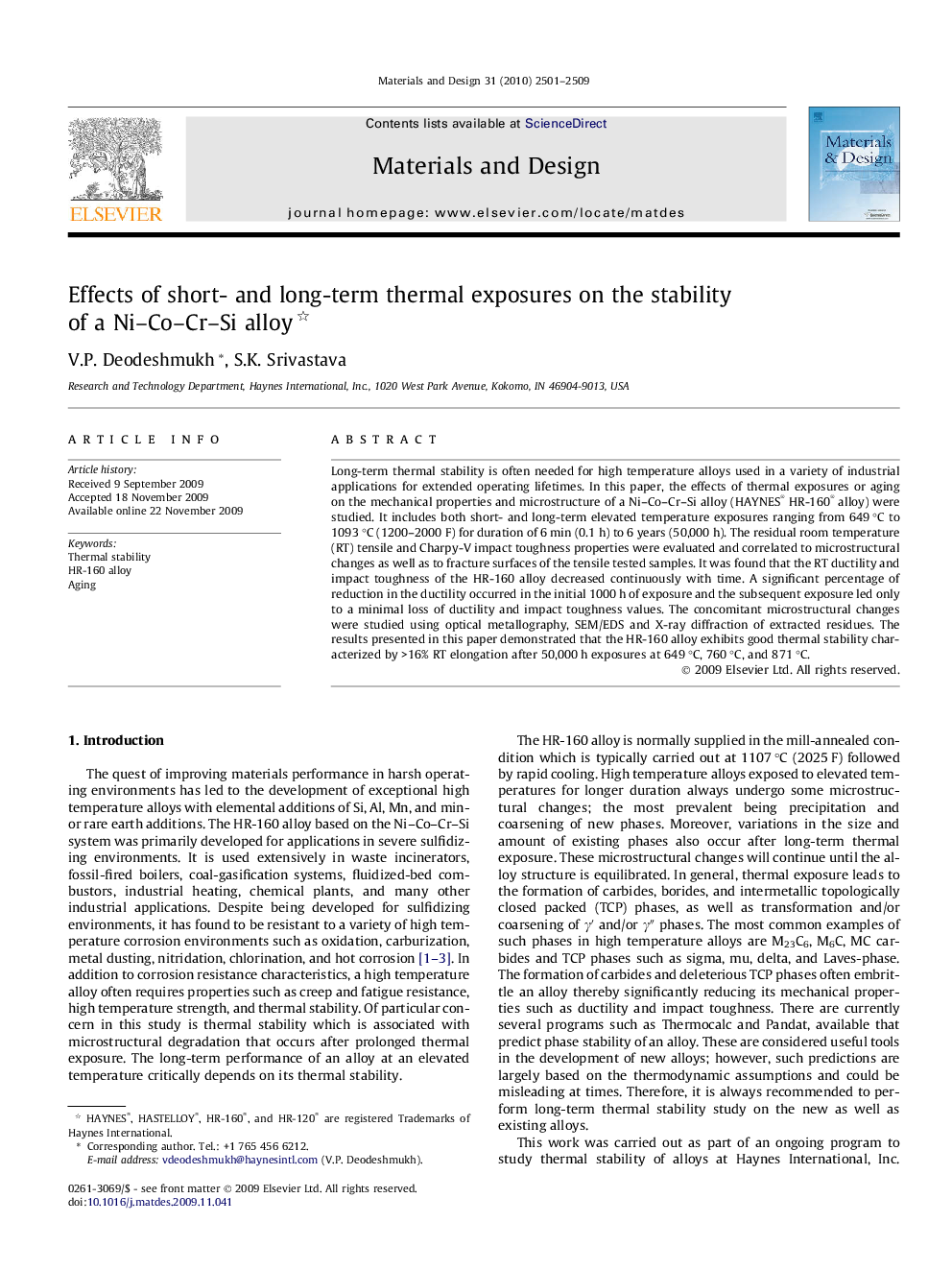| Article ID | Journal | Published Year | Pages | File Type |
|---|---|---|---|---|
| 832075 | Materials & Design (1980-2015) | 2010 | 9 Pages |
Abstract
Long-term thermal stability is often needed for high temperature alloys used in a variety of industrial applications for extended operating lifetimes. In this paper, the effects of thermal exposures or aging on the mechanical properties and microstructure of a Ni-Co-Cr-Si alloy (HAYNES® HR-160® alloy) were studied. It includes both short- and long-term elevated temperature exposures ranging from 649 °C to 1093 °C (1200-2000 F) for duration of 6 min (0.1 h) to 6 years (50,000 h). The residual room temperature (RT) tensile and Charpy-V impact toughness properties were evaluated and correlated to microstructural changes as well as to fracture surfaces of the tensile tested samples. It was found that the RT ductility and impact toughness of the HR-160 alloy decreased continuously with time. A significant percentage of reduction in the ductility occurred in the initial 1000 h of exposure and the subsequent exposure led only to a minimal loss of ductility and impact toughness values. The concomitant microstructural changes were studied using optical metallography, SEM/EDS and X-ray diffraction of extracted residues. The results presented in this paper demonstrated that the HR-160 alloy exhibits good thermal stability characterized by >16% RT elongation after 50,000 h exposures at 649 °C, 760 °C, and 871 °C.
Keywords
Related Topics
Physical Sciences and Engineering
Engineering
Engineering (General)
Authors
V.P. Deodeshmukh, S.K. Srivastava,
